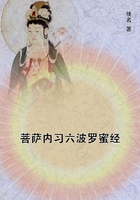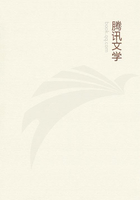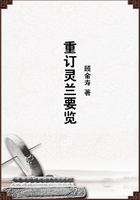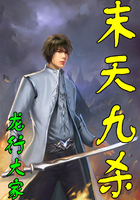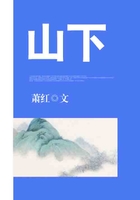SOCRATES: The word onoma seems to be a compressed sentence, signifying on ou zetema (being for which there is a search); as is still more obvious in onomaston (notable), which states in so many words that real existence is that for which there is a seeking (on ou masma); aletheia is also an agglomeration of theia ale (divine wandering), implying the divine motion of existence; pseudos (falsehood) is the opposite of motion; here is another ill name given by the legislator to stagnation and forced inaction, which he compares to sleep (eudein); but the original meaning of the word is disguised by the addition of psi; on and ousia are ion with an iota broken off; this agrees with the true principle, for being (on) is also moving (ion), and the same may be said of not being, which is likewise called not going (oukion or ouki on = ouk ion).
HERMOGENES: You have hammered away at them manfully; but suppose that some one were to say to you, what is the word ion, and what are reon and doun?--show me their fitness.
SOCRATES: You mean to say, how should I answer him?
HERMOGENES: Yes.
SOCRATES: One way of giving the appearance of an answer has been already suggested.
HERMOGENES: What way?
SOCRATES: To say that names which we do not understand are of foreign origin; and this is very likely the right answer, and something of this kind may be true of them; but also the original forms of words may have been lost in the lapse of ages; names have been so twisted in all manner of ways, that I should not be surprised if the old language when compared with that now in use would appear to us to be a barbarous tongue.
HERMOGENES: Very likely.
SOCRATES: Yes, very likely. But still the enquiry demands our earnest attention and we must not flinch. For we should remember, that if a person go on analysing names into words, and enquiring also into the elements out of which the words are formed, and keeps on always repeating this process, he who has to answer him must at last give up the enquiry in despair.
HERMOGENES: Very true.
SOCRATES: And at what point ought he to lose heart and give up the enquiry? Must he not stop when he comes to the names which are the elements of all other names and sentences; for these cannot be supposed to be made up of other names? The word agathon (good), for example, is, as we were saying, a compound of agastos (admirable) and thoos (swift). And probably thoos is made up of other elements, and these again of others.
But if we take a word which is incapable of further resolution, then we shall be right in saying that we have at last reached a primary element, which need not be resolved any further.
HERMOGENES: I believe you to be in the right.
SOCRATES: And suppose the names about which you are now asking should turn out to be primary elements, must not their truth or law be examined according to some new method?
HERMOGENES: Very likely.
SOCRATES: Quite so, Hermogenes; all that has preceded would lead to this conclusion. And if, as I think, the conclusion is true, then I shall again say to you, come and help me, that I may not fall into some absurdity in stating the principle of primary names.
HERMOGENES: Let me hear, and I will do my best to assist you.
SOCRATES: I think that you will acknowledge with me, that one principle is applicable to all names, primary as well as secondary--when they are regarded simply as names, there is no difference in them.
HERMOGENES: Certainly not.
SOCRATES: All the names that we have been explaining were intended to indicate the nature of things.
HERMOGENES: Of course.
SOCRATES: And that this is true of the primary quite as much as of the secondary names, is implied in their being names.
HERMOGENES: Surely.
SOCRATES: But the secondary, as I conceive, derive their significance from the primary.
HERMOGENES: That is evident.
SOCRATES: Very good; but then how do the primary names which precede analysis show the natures of things, as far as they can be shown; which they must do, if they are to be real names? And here I will ask you a question: Suppose that we had no voice or tongue, and wanted to communicate with one another, should we not, like the deaf and dumb, make signs with the hands and head and the rest of the body?
HERMOGENES: There would be no choice, Socrates.
SOCRATES: We should imitate the nature of the thing; the elevation of our hands to heaven would mean lightness and upwardness; heaviness and downwardness would be expressed by letting them drop to the ground; if we were describing the running of a horse, or any other animal, we should make our bodies and their gestures as like as we could to them.
HERMOGENES: I do not see that we could do anything else.
SOCRATES: We could not; for by bodily imitation only can the body ever express anything.
HERMOGENES: Very true.
SOCRATES: And when we want to express ourselves, either with the voice, or tongue, or mouth, the expression is simply their imitation of that which we want to express.
HERMOGENES: It must be so, I think.
SOCRATES: Then a name is a vocal imitation of that which the vocal imitator names or imitates?
HERMOGENES: I think so.
SOCRATES: Nay, my friend, I am disposed to think that we have not reached the truth as yet.
HERMOGENES: Why not?
SOCRATES: Because if we have we shall be obliged to admit that the people who imitate sheep, or cocks, or other animals, name that which they imitate.
HERMOGENES: Quite true.
SOCRATES: Then could I have been right in what I was saying?
HERMOGENES: In my opinion, no. But I wish that you would tell me, Socrates, what sort of an imitation is a name?
SOCRATES: In the first place, I should reply, not a musical imitation, although that is also vocal; nor, again, an imitation of what music imitates; these, in my judgment, would not be naming. Let me put the matter as follows: All objects have sound and figure, and many have colour?
HERMOGENES: Certainly.
SOCRATES: But the art of naming appears not to be concerned with imitations of this kind; the arts which have to do with them are music and drawing?
HERMOGENES: True.


